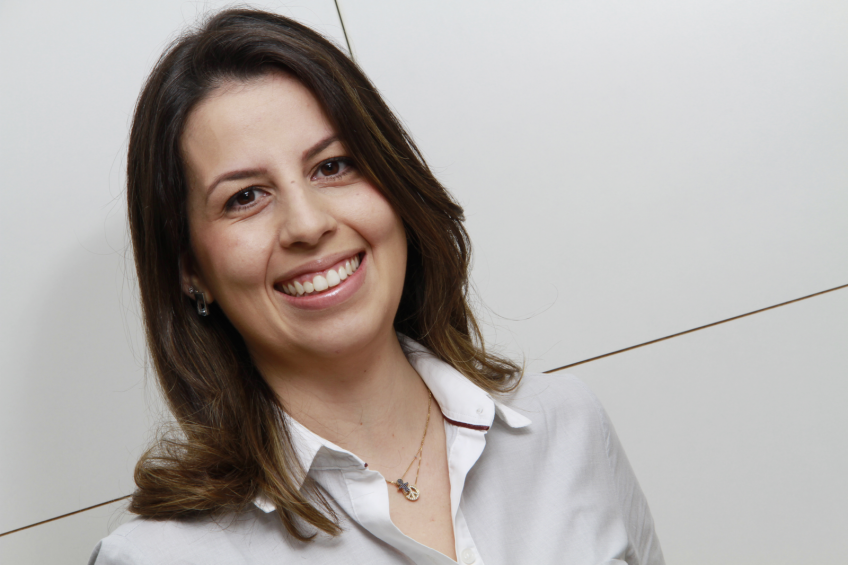New IPC secretary general eager to help IPC grow

The International Poultry Council appointed a new secretary general on August 1st. The Brazilian Marilia Rangel will focus on bringing new members to the IPC and supporting the upcoming rapid growth of the sector.
Congratulations on your new function as secretary general of the IPC. How will your background and experiences with the IPC so far help you in your work?
“For me it is an honour to be chosen as the IPC’s next secretary general. There are so many things that can be done as an international organisation. In my work as chief deputy to ABPA vice president Ricardo Santin I have been active in IPC affairs. I focused on trade promotion activities first and started working with governmental relations and conflict resolutions in the dispute segment in 2009. I coordinated sustainability issues and took part in trade and market access negotiations. In my work with the IPC I have seen it grow. The people behind the organisation are very passionate about the industry and its possibilities and I am looking forward to working along them in my role as secretary general.”
What is your view on the development of the poultry sector?
“I think the development of the poultry sector in the past and the future is very bright and there is a lot to do. In my opinion the poultry sector is going to be on top of the list of animal protein sources in the future. It will be the number one consumed meat protein among beef and pork. It will surpass pork soon. Secondly, contrary to pork there are no religious restrictions associated with chicken. Everybody can eat it. The areas where we see a vast expansion of chicken consumption is exactly in those countries where the islamic religion is growing. Plus, chicken is the most affordable meat protein that we have. We call it an entrance protein. As soon as wages are increasing and cities are growing – think of Africa and Asia for instance – the first thing people want to improve is their diet. Animal protein consumption as a whole will increase, and chicken is the first in line, due to the fact that their production cycle is shorter, they are easier to produce and producing them requires less recourses such as grains, land and water.”
Which opportunities and weaknesses do you identify?
“The greatest strength of the poultry sector is its potential to be a great source of high quality protein to growing countries and sustainable production. It is the key strength of our sector as a whole. In terms of weaknesses there is still a lot to do about animal health. Avian Influenza (AI) for instance. We have to find out how to treat it, as it will affect all poultry produced all over the world. Every country has a market where chicken is being sold, so AI will influence every single country when it faces trade barriers. Trade barriers are complicated, as they have a side that imposes barriers and a side that jeopardises them. As IPC we can’t stand against or in favour of it, but we can help in order to find the best standards in science. By helping international organisations set standards based on science we will help make it more difficult for countries to impose trade barriers that are not consistent with the World Trade Organisation agreements.”
In what respect do you think IPC can make a difference?
“The IPC can be one of the key factors in helping industries throughout the world develop, by gathering industry associations in different parts of the world. The IPC can also work a lot with countries which are not yet IPC members. Industries that are not so much developed, but do want to develop. IPC has such a great network, which can leverage industries in those countries who want to develop. Cooperation is a key factor that IPC can contribute to the industry. Additionally, poultry meat being the number one source of protein must be addressed carefully. We know it will be the main consumed meat but at the same time this growth has to be organised and based in good manufacturing practices. I think IPC can play a role in helping countries develop and care for sustainability. We can help them take issues such as animal welfare and animal health into account and help them organise themselves and grow their own industries. We don’t grow it for them but we can give them advice and information.”
What will your focal points be as secretary general?
“My main objective is bringing more members to the IPC. The IPC is very active in discussing animal health, which is a topic we want to promote, along with animal welfare, food safety and sustainability. We have been promoting these discussions and it is one of our top priorities to enhance communication of these matters outside the group of IPC members. Bringing more members will mean more people can be part of the discussions. As we grow, our presence in international discussions grows too. We are the unified voice of the sector, giving the entire poultry industry one single voice. We represent more than 80% of the global production of chicken, but it can be a 100% soon. That is my main objective: to grow our presentation within countries and within the international organisations. Reaching new countries is proactive work of the IPC. We will focus on organisations. Of course it is good to have associate members, but we will also have to focus on countries as members. They are the voice of the poultry industry within their borders. If we are in good contact with them, it will be easier to be in good contact with the industry. My second point of focus is setting up working groups, which will focus on improving food safety, consumer confidence, animal health and how to deal with AI scenarios. Both focal points fit me well. One of the things that helped me in the selection process, was the fact that by working in the Brazilian industry I travelled all over the world and I had a chance to meet many people, also in Asia and Africa. This network may play a role in reaching my objectives to help the IPC grow.”
Marilia Rangel
Sao Paulo, Brazil
Rangel is the new secretary general International Poultry Council. She has worked as a foreign markets coordinator at the Brazilian Association of Animal Protein (ABPA) for eight years. She holds a Bachelor’s degree in international relations from the University of Sao Paulo.













